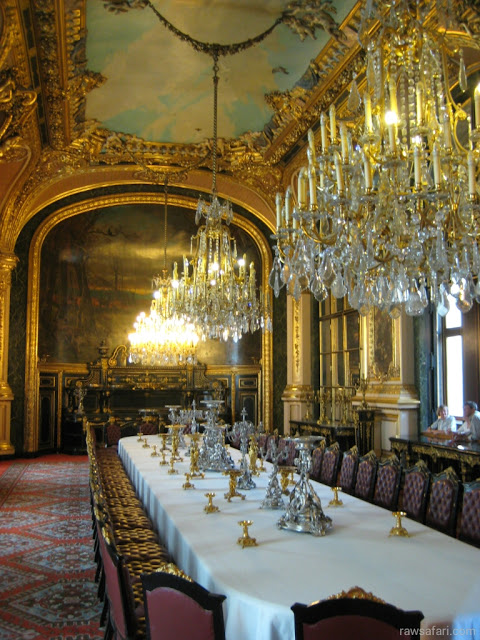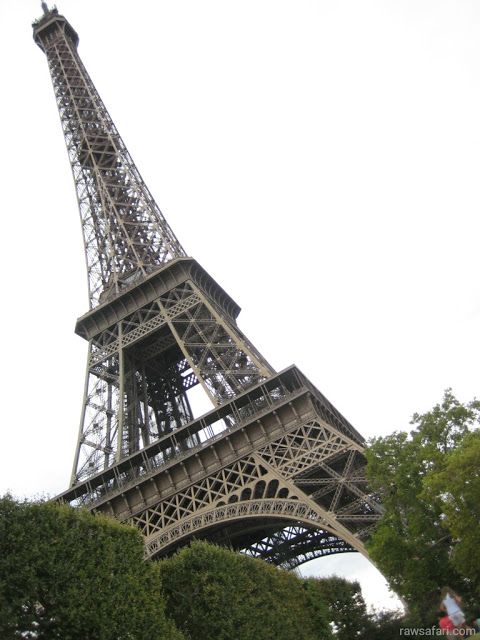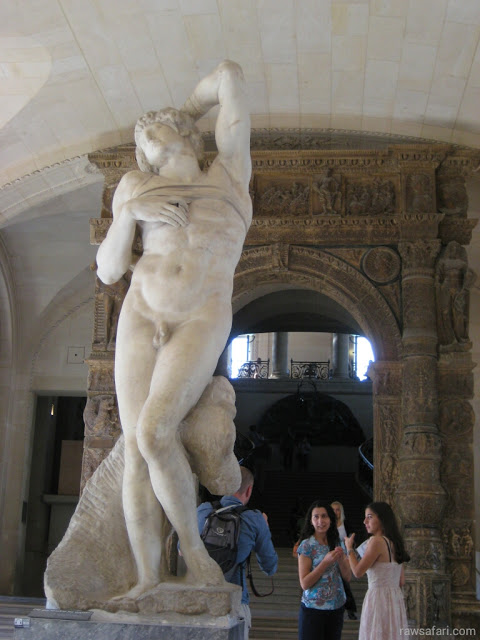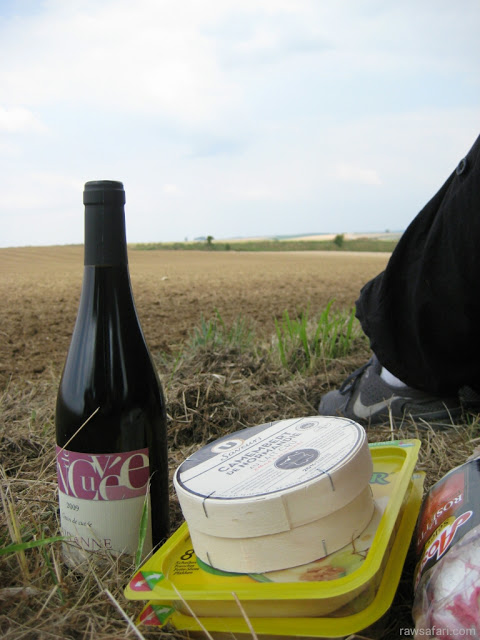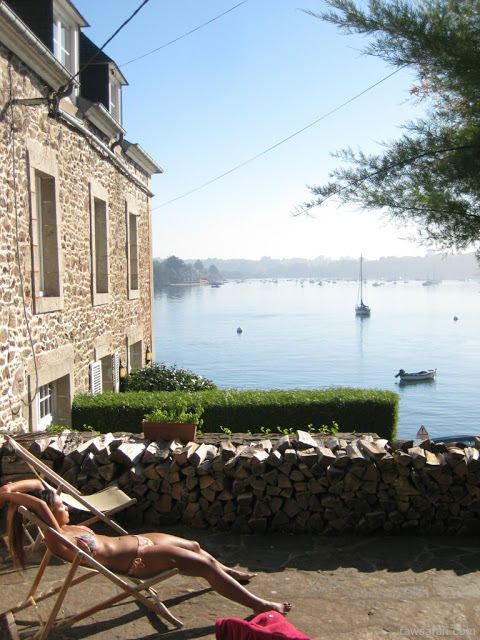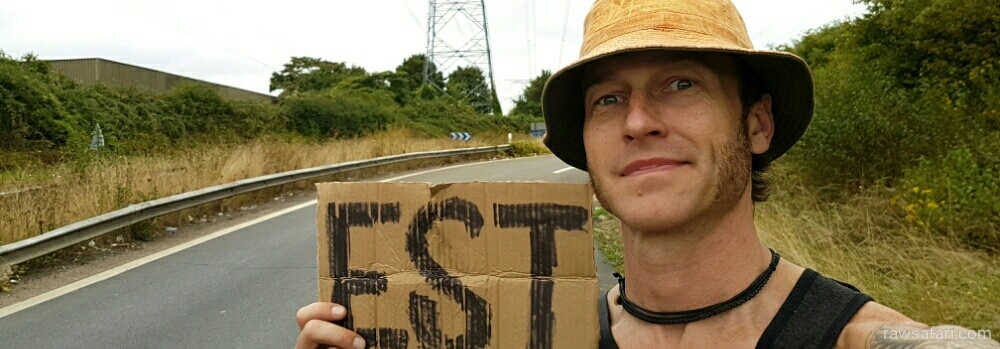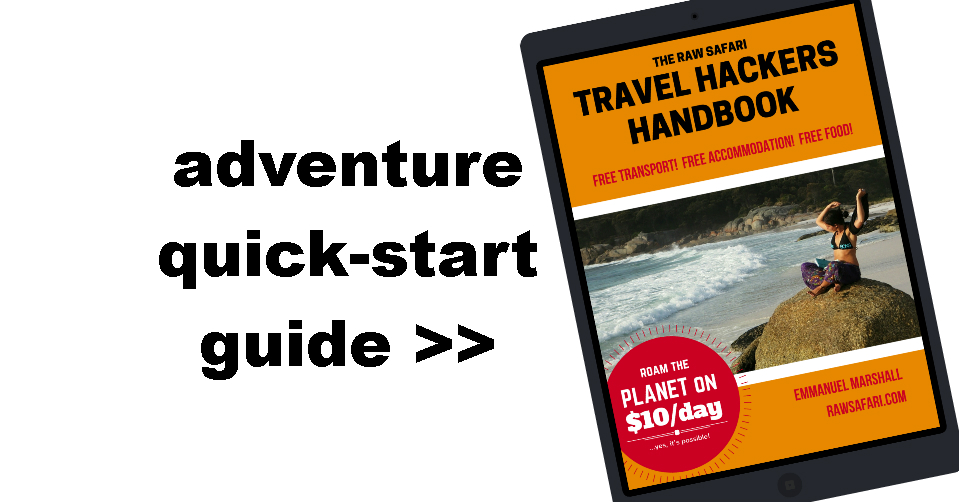…If you want to travel REALLY cheap, food is the only thing you ever spend money on… Put your wallet in the bottom of your bag, and only get it out at mealtimes. Once in a while you will need to fork out for a museum, art gallery or the like, but even then there are sometimes work-arounds…
Shoe-String Travel
Normandy, The Somme, Brittany, Mont-St-Michel, the north coast, Paris, the Louvre, Notre Dame and Strasbourg… for US$11.00 a day?
How do I do it?!
(Top: the Royal Apartment at Le Louvre, Paris.)
Low budget travel in France breaks down to 5 key topics:
1. transport
2. accommodation
3. eating
4. equipment and preparation
5. pace
If you want to travel REALLY cheap, food is the only thing you ever spend money on. A lot of long term travelers, like me, regularly dumpster dive, and get food free, a strategy that works well in wealthy countries like France.
Put your wallet in the bottom of your bag, and only get it out if you’re hungry. Once in a while you will need to fork out for a museum, art gallery or the like, but even then there are sometimes work-arounds. Example: I found out too late to take advantage of it, but the museums and galleries of Paris, including the Louvre, offer free entry on the first Sunday of each month. Admission to the Louvre is only nine Euro anyway, and it is money well spent.
1: Transport
I have been a hitchhiker for more than ten years, and it is an unbeatable way to see the world cheaply. I have talked about the beauty of hitchhiking from a social point of view in other posts, but right now, brass tacks: hitchhiking is free. If you need to get from A to B, and you still want to have money for art galleries and good wine at the end of the day, then hitching is the way to go.
The people you meet will give you information about your destination, and in France, a country of amazing friendliness and generosity, will sometimes even offer to host you in their homes.
France’s road system is easy to hitch, the police are friendly and tolerant, and in summer the weather is kind, especially in the south.
I only paid for transport 3 times in France, on short trips around Paris. I hitched from the northern border of Normandy, across Brittany, to Paris, Strasbourg, and then south to Italy, and rarely had long waits for rides.
Do not believe what people tell you about the French. Everyone in the world seems to bad mouth the French, but I have never met more helpful, courteous, and friendly human beings. If you are friendly and polite in France, you will be rewarded with generosity everywhere.
Hitchhiking beside the high speed motorways is illegal in France, but all other roads, and motor way entry ramps are fair game. Service stations are also great pitches, especially in larger towns where it can be hard to get out from the centre. If you have never hitched before, France is the place to start.
Make sure you are equipped properly (see below), use common sense, and you will have nothing but good experiences hitching in France.
Haven’t hitchhiked before, but want to give it a go? Read my “Hitchhiking 101“.
2: Accommodation
Saving money on sleeping in France comes down to equipment, and good manners.
I will go into detail about the equipment angle later. Basically, hotels in France, like everywhere in western Europe, are expensive, so invest in good camping gear, and use it. You can be comfortable and secure camping in France, but it hinges on having some basic know-how, and the right equipment.
Note: weather is a big factor for comfortable camping in France. Avoid travelling in the colder months – from October to March, especially in the north. Keep your plans flexible. If it starts to get cold where you are, head further south!
So you’ve just arrived in a strange town and it’s getting dark. Where do you camp?
Finding a camp site is about observation. The first thing to do is consult a map. If you have a free GPS mapping app, like Map Factor, you can quickly and easily find out exactly where you are. If you are doing things old school, obtain a tourist map of the town from an information centre or hotel.
Once you know where you are, look for areas on the map that offer the best possibility for camping. Find places on the map that are green zones or vacant land. A good urban camp site must have 3 important features:
1. it must be relatively close to the attractions of the town and sources of food and water
2. it should be hidden and not too close to footpaths or houses
3. it must be dry, and not susceptible to flooding in the case of sudden rain
Often, vacant land suitable for camping can be found on the edge of bodies of water, beaches, rivers, creeks and lakes. Do not camp in dry creek beds. One hour of heavy rain, and you could find yourself in deep water.
Large roadways such as motorways and train lines often have areas of waste ground beside them where you can camp.
Look for areas that are not lit up at night. Find places that are lightly overgrown, with long grass, or bushes to screen your camp site from passers by.
Improvise and observe. Study your surroundings and investigate any areas that look dark and quiet. Some camp sites are OK for one night, others are good for a week. It all depends on the circumstances.
Being invisible is key to successful urban camping. If you are unobserved you will avoid any hassles with police, council rangers, or passers by. Use organic colored, camouflaged gear and clothing. Be aware of anyone who may observe you arriving at, or leaving your camp. Check the appearance of your camp from an outside point of view, to make sure it is not drawing attention.
When you choose a camp site, look for tell-tale signs of traffic, like well worn paths, garbage, or other traces of people using the area. Sometimes moving your camp 5 metres off a trail makes the difference between invisibility, and having some poor drunk tripping over you in the middle of the night.
Especially in regions where poverty is an issue, attractive camp sites may also be favorite places for homeless people to sleep, so look for signs of habitation like mattresses and empty bottles before you settle.
There is more detailed info about urban camping on the Free Accommodation page.
Lets talk about communication. The French are well mannered people. They are hospitable and generous, and all you need to do is be friendly and polite. So many times in France I was offered a meal and a bed for the night, and only ended up using my camping gear 30% of the time. I always make an effort to communicate with my drivers, and establish a friendly rapport, even if there is a language barrier. In France you will be handsomely rewarded for making the effort. The drivers I met in France were willing to become my friends, and it usually only took a few minutes of awkward, good humoured pigeon French. If you tell people about yourself it is easier for them to trust you, and trust is the key to friendship. Most French people I met knew a lot of English, and although they were sometimes a bit hesitant to use it, after I had made a fool of myself trying to speak French, they were more relaxed.
Being invited to people’s homes is always the highlight of traveling for me. I am always especially grateful to my hosts for a bed and a hot shower, when the alternative is another night under canvas. Thank you once again to all my hosts. You guys really make my day!
I only couch surfed once in France, in Paris. It was a really good experience, and I recommend it. For me, organised couch surfing is a bit too scheduled to do all the time, but it works. Don’t bother with Couch-Surfing.com itself, because it is difficult to use and starting to decline in popularity. Go straight to Be-Welcome. It’s free, easy to use and works very well. If you want a place to stay in Paris, a good tip is to search the surrounding suburbs, rather than “Paris” itself. The hosts who actually live in the city centre get flooded with requests, but people in the inner suburbs, not so much.
(Below: Michelangelo’s Dying Slave, The Louvre, Paris)
3: Eating
The food in France is good. Very good. You don’t need to spend big $ on restaurants to eat amazing stuff. Dining out is expensive in Europe generally, and unless you spend big, the experience will probably be underwhelming.
In France, I lived on baguettes, fresh fruit and vegetables, small goods like pate and salami, and of course, fromage (cheese)!
I didn’t dumpster dive every day for my food in Europe, like I do in Australia, because I wanted to eat local specialties and exotic stuff. But if you wanted to eat for free in France it would not be hard to get everything you need out of bins.
Living on sandwiches in France is a pleasure. I only shopped in large supermarkets whenever possible, and the range and quality of food available was fantastic. Every supermarket, even small ones, have a bread oven, and stock superb locally made small goods.
Most major service stations even have a bread oven, which is awesome for hitchhikers!
A typical meal for me in France would consist of: an oven fresh stick of bread (baguette); one of the huge variety of superb cheeses available, a cucumber, or capsicum, and a piece of fruit.
Cheese and bread are very important to the French, and they demand a very high standard. Many cheeses are made without pasteurisation (fromage au lait Cru), and this gives them a greater richness and depth of flavour. Every cheese is unique and combined with wine (which is very cheap), the flavour sensations are almost erotic. French salami is similarly prepared with the minimum of processing. It is coarse textured, fatty, pungent and utterly delicious. Add a bunch of grapes or a liver pate to the mix, and you are in sandwich heaven.
A sandwich meal like this, bought from a supermarket will run you about US$4
Man, I miss France :-)
(Below: a beautiful French picnic, in a Normandy field)
4: Equipment and Preparation
Saving money on the road means a bit of simple and easy preparation before you set out. If you know where you’re going, prepare accordingly. If you are gonna wing it, like I do, prepare for anything.
Aside from whats in your bag, the best preparation is to know a few useful words in the local language. My French is preposterous, but I knew enough to get by, and get some laughs. I am pretty handy with mime too, which can help.
“bonjoor”: hello
“ovwar”: goodbye
“voo sa lay oo?”: where are you going?
“auto-stop”: hitchhike
“see voo play”: please
“mersee”: thanks
“tray bon”: very good / delicious / nice car / OK!
There’s always Google Translate if you get stuck.
Having the right gear is key. Do not underestimate the importance of good, suitable equipment. Spending $500 now, on high quality, light gear, will save you thousands of dollars, and millions of swear words later. Camping out every night is only do-able if you are well prepared. If your nights are cold and uncomfortable you will soon give up and check into a hotel.
When choosing equipment select drab, organic colours, that will camouflage well. You don’t want to attract attention when urban camping.
I have posted before in detail about the gear I use. Below, is just a quick summary.
Bag.
No more than 30 litres. Weight depends on your strength and size, but keep it light. A bag that feels fine in your bedroom will feel a whole lot heavier when you have lugged it half way across Europe.
Sleeping bag.
Buy the most expensive sleeping bag you can afford. Go to a real outdoor store that sells high end, technical gear. Aim for a bag that is both light, and has a good comfort temperature rating. Down filling is a must. Down (fluffy feathers) is light, warm, and crushes small.
Tent.
Get one that is simple, compact and light. Under 2.5 kg is ideal.
Sensible clothes.
OK. Common sense. Don’t take denim, it’s heavy. Don’t take bulky knit jumpers. Leave your knee length Doc Martens at home. Pack comfortable, versatile clothing, and sacrifice variety for economy. 3 t-shirts, 3 pairs underpants, 6 pairs of socks, one pair of pants, a set of thermals, and a jacket. That’s it.
Remember, if you pack it, you have to carry it. While you are at the outdoor shop buying a sleeping bag, spend some time trying on nerdy hiking pants and jumpers. Fashionable backpackers are always exhausted and sweaty (or spending a fortune on taxis).
Maps.
Every time you get to a new place, get a map. Always carry a pocket compass. Enough said.
If you have an Android device like a smartphone, or a tablet with GPS, get an app called “Map Factor Navigator“. It’s free, and it is totally AWESOME. Once you download a map package for a country you will always be able to see on the map exactly where you are, even without an internet connection! Get it. “Tom-Tom”, “Navigon” and others sell similar products but they are expensive!
WiFi.
Don’t bother with a French SIM card. Turn off your phone, and use free WiFi at cafes, McDonalds, service stations, etc to keep in touch.
Buy some Skype credit, and you can call phones everywhere over the internet.
Money.
Check with your bank how to optimise your cards for overseas use.
Get a traveler’s credit card, like 28 Degrees, to eliminate transaction and exchange fees. It will save you $$.
Put your wallet in an inaccessible part of your bag, and only keep a few small notes in your pocket.
5. Pace
Take your time. To travel cheap, you often need to travel slow. Don’t rush. Hitchhiking can be a waiting game, and sometimes someone you meet will invite you to linger a bit longer somewhere. Take it easy and enjoy it. There’s a great quote I read somewhere: “travelers don’t know where they are going, but tourists don’t know where they have been”. Traveling cheap in France forces you to take your time, and you will get to know places better as a result.
Many of the people I met hitchhiking in France told me very interesting things about the history of their regions, about their lives, and their families. You don’t get that whizzing around in trains and planes.
Camping and hitchhiking is physically strenuous sometimes, so give yourself time to rest. When you find a nice place, sleep late, swim, snooze in the sun. Shoe string travelers can take long vacations, because our money goes a long way. Sometimes it can be frustrating, but try to embrace serenity. Sooner or later you will get where you want to go, and when you do you will still have enough money for a nice bottle of wine with your baguette.
(Below: ‘camping’ with Nia in Saint-Antoine – thx Pierre!)
Conclusion
US$11.00 per day is more than enough to have an awesome experience in France. Some days you will go over budget, but other days you won’t have to spend a cent, so it will average out.
That’s it really. Not rocket science is it? It took me years to figure this stuff out, but I’m a slow learner. Now, I’m always looking for ways to travel lighter, further, and cheaper.
France is the perfect place to begin your adventures as a shoe string traveller. If you are thinking of going to France and you want to do it cheap, I have one final piece of advice: go! Go Now!
Hi! Manny here, the guy who makes this blog.
Want to start an adventure of your own?
Download your FREE copy of my e-book: The Raw Safari Travel Hackers Handbook and learn how to see the world on $10 a day!
Everything I’ve ever learned about low-budget adventure is in this book. Get it now, for free: click here!
